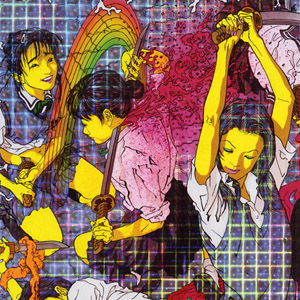Laurel Halo Quarantine
Since her initially self-released debut, the King Felix EP, first garnered attention back in 2010, […]

Since her initially self-released debut, the King Felix EP, first garnered attention back in 2010, Laurel Halo has taken anything but a predictable path as a producer. At first, she appeared to solely be a talented bedroom crafter of leftfield electronic pop, but an adventurous run of EPs and remixes has redefined her output since, proving that the Brooklyn resident is happy to switch aims and explore new creative territory as she sees fit. Quarantine, her debut full-length, is yet another twist in the story, one which finds Halo’s productions returning the focus to her voice more than any release since her initial outing two years ago. What takes shape is a solid, unflinching artistic statement, an effort at moments challenging and bizarre, and at others dreamy and utterly inviting.
As a publication that has supported Kode9’s Hyperdub imprint since its inception (not that it was a particularly difficult choice), it feels necessary to point out that this record is a stretch for the label’s catalog. Even if you have been into every single release Hyperdub has put out over the years, Quarantine still might not be for you. First of all, it’s almost completely vacant of drum programming; only occasional kicks, toms, and snares appear here, usually filtered, processed, and pushed to the bottom of the mix—they’re certainly never used in any sort of dance-oriented fashion. Nevertheless, those seeking forward-thinking electronic music in the larger sense of the genre will find that Quarantine does have a lot to offer, even if it may not be clear yet how exactly Laurel Halo will fit within the Hyperdub roster.
The most impressive aspect of the record is its instrumental production—Halo’s ability to create dense and detailed sonic worlds is leaps and bounds beyond anything she’s done before. It’s unclear what exactly has come together to create these rich aesthetics, as the line between what is sampled and what comes from a synthesizer is totally lost and, in all honesty, mostly besides the point. Throughout the record, Halo’s production prowess takes a variety of forms: “Airsick” and “Morcow” twist, process, and distort pieces of piano into grainy textures; “Wow” combines gorgeous layers of alien voices into a far too brief procession of thick, gliding chords; and songs like “Joy” and “MK Ultra” billow and overflow with pilings of tastefully warm synthesizers that float and turn effortlessly in a manner which is impossible to follow but still feels entirely natural. The largely ambient structures Halo manages to build are virtually flawless and exceptionally displayed, vast in their sonic reach and amazingly easy to get lost within.
It’d be interesting to hear an instrumental version of Quarantine considering that Halo’s vocals—which appear on over half of the songs here—are really the only points of contention one could rightfully have with this record. Laurel Halo has a powerful voice, and when she decides to use it, her harmonizing layers are upfront and strong, rendering them the track’s focus. To her credit, the largely undisguised vocals fit well from a mixdown standpoint, definitely sitting on top of their counterparts but still making sense within the sonic landscape. There are a few moments where these vocals not only work but serve to make the song more impactful, particularly on the album’s closing cut, “Light + Space,” which musically moves in an unexpected but immensely rewarding manner, landing on a beautiful, harmonized chorus in which Halo enlightens the listener with a simple reminder, “Words are just words that you’ll soon forget.” On this particular cut, her choice to use little perceivable processing on the vocals makes for an intriguing contrast with the soupy track below, and something about it seems easier to connect to—it’s more human and more direct. Still, this aesthetic is usually a bit jarring (possibly by design), especially on “Years” and “Carcass,” where the vocal contributions are more abstract and dissonant, effectively pulling the listener too far out from the swimming productions, making for a listening experience that is a bit uncomfortable.
Quarantine is a challenging record, and one that is likely to attract the attention of decisive listeners—those that will praise it as an exemplary stroke of high art, and those that will pan it as too “hipster” or unnecessarily “avant-garde.” However, those who approach the album with a balanced outlook are likely to reap the truest rewards from it, and, in doing so, have the pleasure of witnessing an adventurously bold debut LP from a producer whose imagination and talent, at this point, appear almost limitless.

